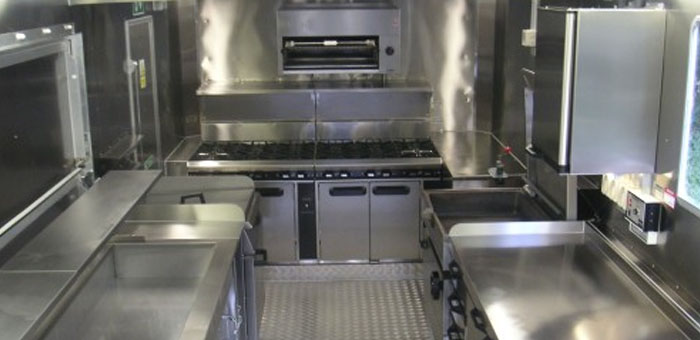Food truck kitchen cleanliness is one of the major factors that affect how customers perceive your mobile food business. If you don’t have a clean food truck the least that might happen is the direct affect to the taste and quality of the food you serve, where the extreme side could provide your customers with food poisoning.
Not only will this affect your sales and reputation, but it can find it’s way into the morale of your food truck employees. No matter what size your food truck’s kitchen is, ensuring that it’s clean can be difficult without setting up an effective schedule.
3 Steps To Making Sure You Have A Clean Food Truck
Here are three easy steps to follow to ensure that your food truck maintains a high degree of cleanliness in the kitchen.
Evaluate Cleaning Crews and Employees
Many food trucks hire professionally trained cleaners to help keep their kitchen clean and ready for their next shift. The problem with this strategy is that owners will fail to consistently monitor these cleaning crews to ensure that the job is done correctly and according to health standards.
The first step in doing this is making sure that the cleaning crews have the proper certification. To eliminate the likelihood of mistakes and inconsistencies in cleaning, food truck owners should strive to hire the same professional cleaning crews each time.
Although the cleaners handle the biggest jobs, food truck owners should still assign regular cleaning tasks to employees to keep the kitchen from becoming overwhelming for cleaning crews.
RELATED: Don’t Miss These Spots When Food Truck Cleaning
Go Green
A common chemical used in food truck cleaning and other commercial kitchen spaces is bleach. While it will certainly kill germs, it doesn’t contribute to a healthy environment. According to recent studies, bleach is a food truck or restaurant’s number one enemy to worker health and the environment. Bleach not only causes irritation for individuals with asthma and allergies, but can even cause dangerous chemical reactions when mixed with other common substances in a food service setting.
To prevent the hazardous side effects that can come from using bleach, consider safer, more effective and environmentally friendly alternatives. One great alternative is Quats, which stands for quaternary ammonium compounds. These compounds are colorless, odorless and non-corrosive, which makes them safe for anyone to use on virtually any metal equipment and surface.
Routine Cleaning Schedule
Keeping a clean food truck should never be approached from just one angle. Food truck owners should assign daily, weekly and monthly schedules to each cleaning task the truck needs.
Maintaining a clean food truck kitchen can be a full-time job for vendors, and when your lines are long it can be even more difficult to stay on top of it. However, sacrificing as much time and effort as necessary to exemplify the above strategies will ensure more successful and smoother mobile food business in the long run.
RELATED: 6 Tips For Cleaning Your Food Truck Floor
The Bottom Line
A clean food truck kitchen reflects your commitment to excellence and food safety. The cleanliness of a food truck’s kitchen affects the quality of the food it produces. One of the biggest challenges of a running a busy food truck is keeping the kitchen clean. With a multitude of activities happening all the time, regular cleaning can seem overwhelming if you don’t have a system in place.
How do you keep a clean food truck? Share your tips in the comment section or on social media. Facebook | Twitter




